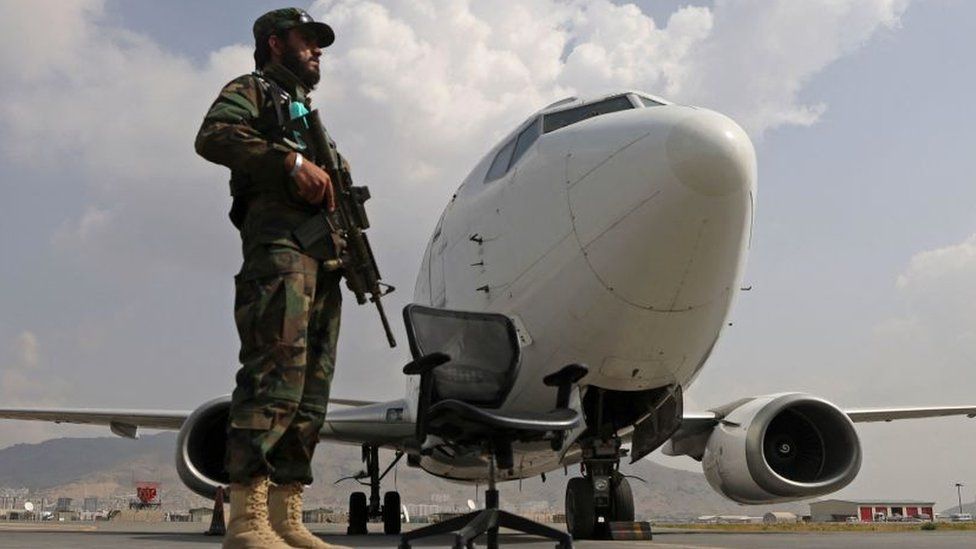ARTICLE AD BOX
 Image source, AFP
Image source, AFP
By Shruti Menon and Jake Horton
BBC Verify
A senior Conservative MP has been criticised for claiming there had been improvements in Afghanistan.
Tobias Ellwood, who is chair of the Commons Defence Committee, described it as a "country transformed" following a recent visit. He also called for the UK government to re-engage with the Taliban and for Kabul's British embassy to reopen.
He put out a tweet with a video saying that security was vastly improved, corruption reduced and the opium trade "ended".
Some social media users criticised the comments, pointing out the massive curtailment of rights for women and girls under Taliban rule.
Taliban chief spokesman, Zabihullah Mujahid, shared the video but erroneously described the Bournemouth East MP as "a British reporter".
Has the opium trade 'ended'?
In his tweet, Mr Elwood wrote that the "opium trade ended" (although in the accompanying video he qualified it by saying the trade had "all but disappeared").
However, this claim is incorrect.
Opium cultivation in 2022 was up by 32% compared with 2021, according to the United Nations Office on Drugs and Crime (UNODC).
The Taliban took over in August 2021 and announced a ban on opium cultivation the following April. A BBC investigation this year found that this was beginning to have an effect with a huge fall in poppy production in major opium-growing provinces.
Image source, Getty Images
Image caption,Opium poppy plants can be refined to form the basis for addictive drugs, including heroin
However, the ban on production doesn't mean the end of the opium trade. Experts says that while production has significantly reduced in poppy-growing areas, the opium trade out of Afghanistan has not stopped.
"Given that prices have unsurprisingly increased and farmers or traders are stockpiling their inventories, it seems very unlikely that trading will or can be stopped," says Prof Jonathan Goodhand, an Afghanistan expert at SOAS University of London.
Mr Ellwood told the BBC he was basing his claim on a visit to Helmand and Kandahar provinces, as well as his time in the capital, Kabul.
He said: "I'm sure it's still grown, but as a 'mass trade' the locals reported it is no longer there."
Has 'corruption reduced'?
Mr Ellwood also claimed corruption is down.
He clarified to the BBC his observation was based on conversations with locals.
Corruption in Afghanistan has fallen slightly in 2022, according to Berlin-based Transparency International - an organisation that tracks corruption globally using World Bank and World Economic Forum data.
Afghanistan ranked 150 out of the 180 countries, improving slightly from its 2021 ranking of 174, but still very low.
Experts say this slight improvement might be because the massive inflows of military assistance and foreign aid spending have stopped, which some believe were fuelling local corruption.
Prof Goodhand says the Taliban does have a "commitment to tackle 'immoral' behaviour," but also warns that it may not last as petty corruption continues in the country.
Jan Koehler, a researcher on Afghanistan at SOAS says there's evidence of other forms of corruption.
He says this includes the "misuse of power to get people into jobs, and personal ties enabling access to the Taliban very much improving ones chances to get one's way in land, water or other resource conflicts".
Has 'security vastly improved'?
Mr Ellwood also claimed Afghanistan's security situation had "vastly improved".
The number of casualties recorded after the Taliban takeover are well below figures from previous years, when foreign forces were still in the country fighting the Taliban.
Image source, Getty Images
Image caption,Taliban members stand guard at border posts into Afghanistan
Between August 2021 and May 2023, total civilian casualties stood at 3,774, according to the UN Assistance Mission in Afghanistan.
In the years before the Taliban takeover, levels of violence were much higher, with civilian casualties peaking in 2016 at over 11,000.
But rebel groups like the local Islamic State group (which opposes the Taliban) continue to target both the Taliban themselves and civilians.
The UN says that there has been a "rise in attacks on places of worship and against minority groups" by such groups.
It also highlights violence directed by some Taliban members against civilian and military officials associated with the former Afghan government.
As for women's safety, a survey conducted earlier this year by UN showed that 68% women believed their physical safety was "very bad" or "bad".
The Taliban has also imposed increasing restrictions on women and girl's ability to work, attend school and university or freely move in public spaces.

 1 year ago
31
1 year ago
31








 English (US) ·
English (US) ·